The Doctors Told Her The Covid-19 Vaccine Would Be The Best Option For Her—But It Turned Out To Be The Worst Decision She Could Have Ever Made For Herself
The doctors told Julianna Mastrantonio the Covid-19 vaccine would protect her. They said it would be the “best option” for her since she was “immunocompromised” – but it turned out to be the worst decision she could’ve ever made.
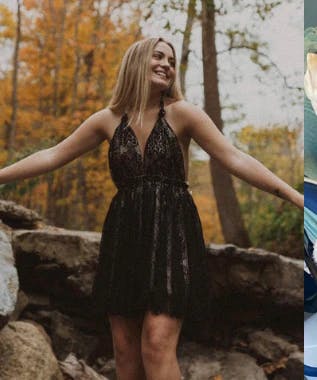
Julianna Mastrantonio was hesitant about the vaccine. Deep down, she knew she was right to feel “off” about the new mRNA shot. And despite what some people may believe, the young and intelligent pre-med student was never a vaccine skeptic or “anti-vaxxer”– she was just concerned about her health. Rightly so, since Julianna’s Lyme disease had stayed in remission for years, and she wanted to keep it that way. Luckily, she was able to obtain a medical exemption for the Covid-19 vaccination from one of her doctors. Much to her dismay, Rochester Institute of Technology – the college Julianna was supposed to attend and got a scholarship for in engineering – rejected her exemption.
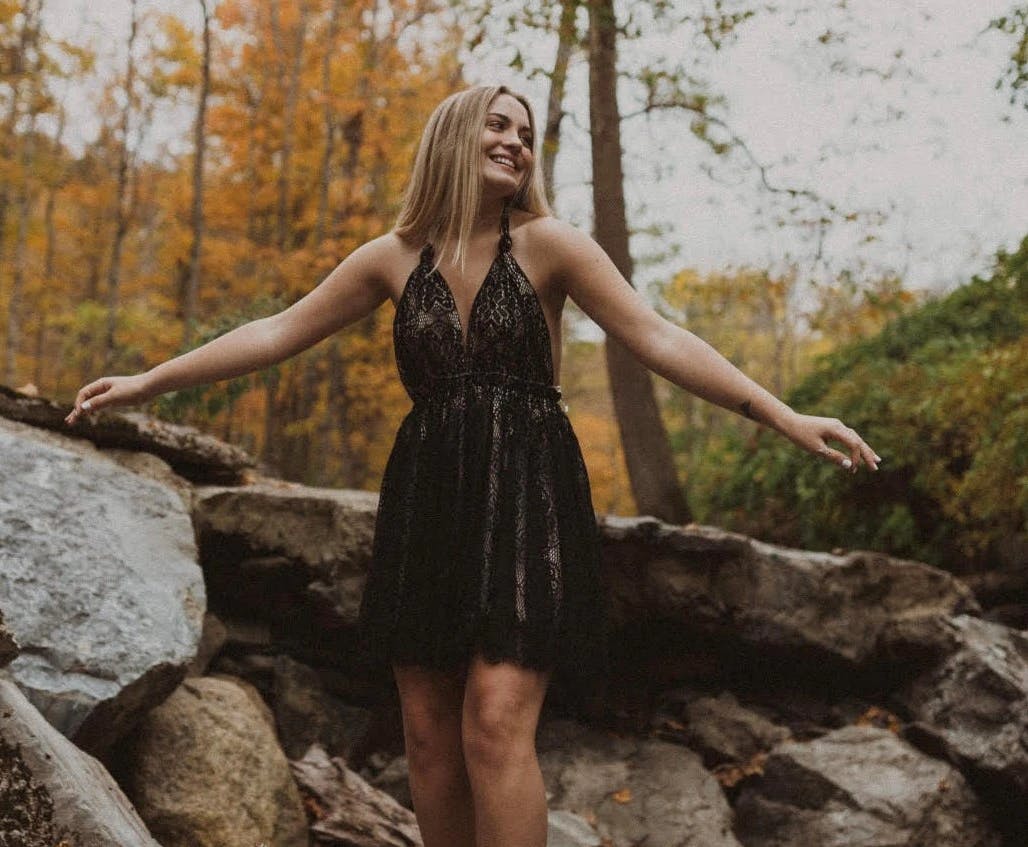
Julianna decided to attend a smaller college closer to her hometown in New York to become a pre-med student instead. But there was a caveat – she was to take a PCR test every week and face the nurses and doctors who were critical of her decision to not take the vaccine. During one of her tests at the clinic, she’d heard the healthcare professionals in the other room talking loudly amongst themselves. “I don't understand why they wouldn't just get the vaccine,” they'd say. They made her feel guilty for not getting it, and they'd shove the tests down her nose so hard she'd bleed. To make matters worse, she had already lost friends because of her controversial choice. Hopelessness set in when Julianna was required to take the first dose for work. Then, months later, the pressure came for the second one.
Julianna's Second Dose of Pfizer Caused Her To Be Paralyzed
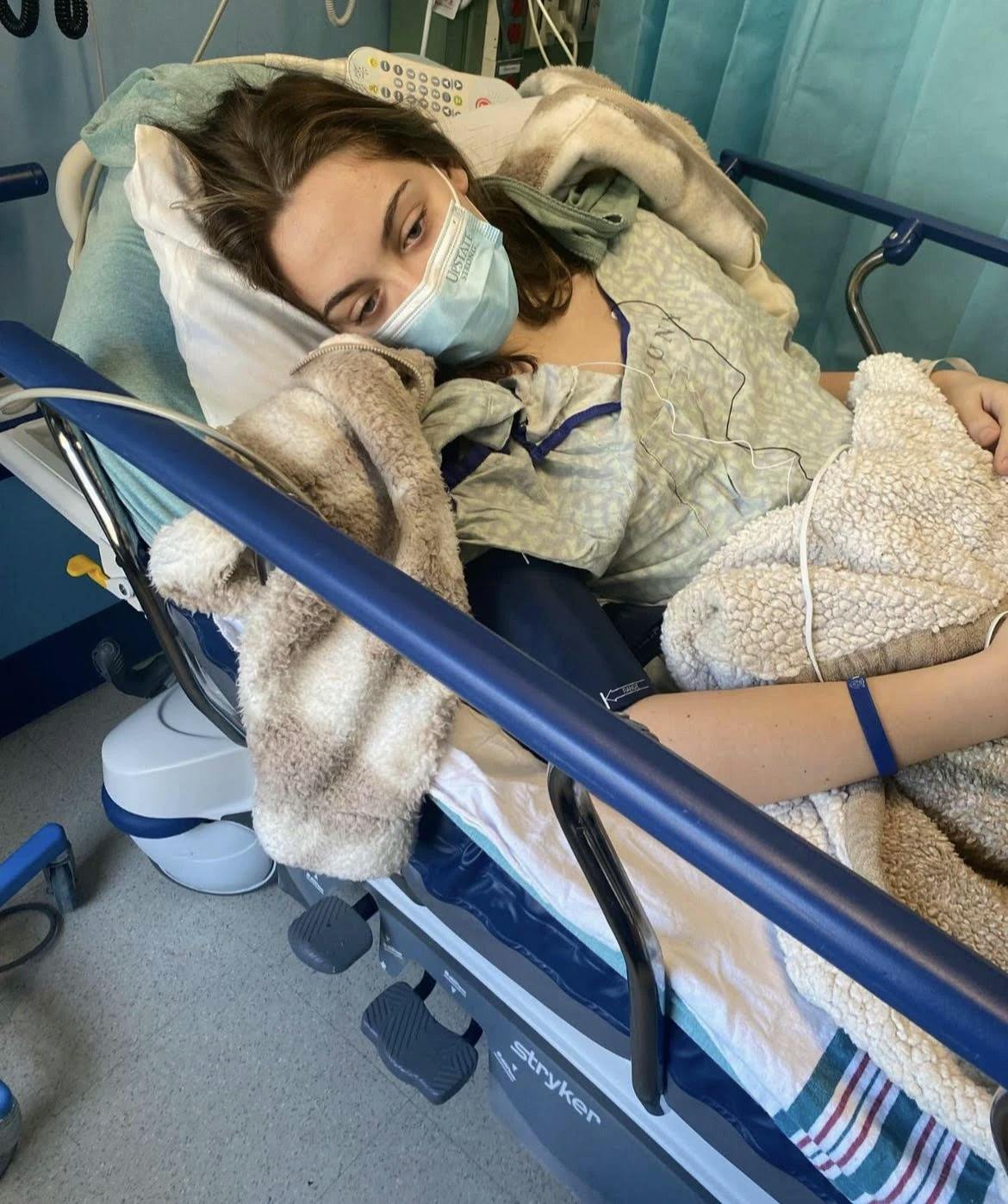
On January 2, 2022, Julianna was at work when her coworker told her she was eligible for her second Covid-19 vaccination. “Yeah, I’m gonna get it,” she tells him. “Okay. Let’s do it right now,” he responded. Feeling the pressure of her friends, doctors, the media, and now her coworkers, she obliged. The next day, Julianna came to work like normal. As she was stocking the shelves, she struggled to bend over due to stomach pain, and she couldn’t walk around. She stayed at work anyway, thinking it was just a “flare-up” from endometriosis, a gynecological-related problem she’s had issues with in the past. But her symptoms only continued to get worse as she brushed them off.
Nearly two weeks later, just a few days after her 19th birthday, Julianna was working on her school assignments when she suddenly got a burning, stabbing pain in her stomach that stretched down to her knee. She went to go to the bathroom and sat down on the toilet, but she couldn't get up. She sobbed out loud in agony. Her boyfriend and her brother had to come and rescue her by picking her up and laying her down on the couch. Her excruciating pain progressed, and she was taken to her hometown’s small hospital shortly after, where she was given morphine and released.
She sobbed out loud in agony.
Two days later, back at home, Julianna was sitting in bed with her boyfriend when her leg started to shake. In a panic, she told her boyfriend to grab her parents. Her limbs started to flail around as she underwent a sudden, non-epileptic seizure. Her family came to the room to try and soothe her while also making sure she didn’t bite her tongue. When it finally settled, Julianna felt like an “empty shell” – the horrifying experience probably shocked her and left her in a disassociated state. When she woke up the next morning, Julianna couldn’t feel anything from the waist down.
Julianna felt like an “empty shell.”
When I asked Julianna what was going through her mind when she was experiencing paralyzation, she said her biggest worries weren’t physical. Instead, she was fearful of what the doctors might say if she told them her issues might be because of the vaccine – a conclusion she came to when she and her mom had researched vaccine reactions that were similar to what Julianna was experiencing. The shot was also the only thing that had changed in that short period of time when her symptoms arose.
That day, she was taken to the Syracuse Hospital, an hour and 45 minutes away from her town. She stayed for two weeks. At the hospital, a neurological team was assigned to her case. Even though there was often a group of professionals examining her, most of them were at a loss. At one point, Julianna experienced convulsions, and a concerned nurse asked a resident doctor: “What should we do?” To which he responded, “I don’t know.”
While she was there, they told her that she couldn’t continue with any physical activity, work, or school – the very things that brought Julianna joy. Then, her worst fear happened. The head neurologist diagnosed Julianna with conversion disorder, a psychiatric condition where the patient’s described symptoms are "inconsistent" with existing medical explanations. Essentially, the neurologist believed Julianna's symptoms were a result of either her own mental health or stress, and not because of the vaccine, or anything else.
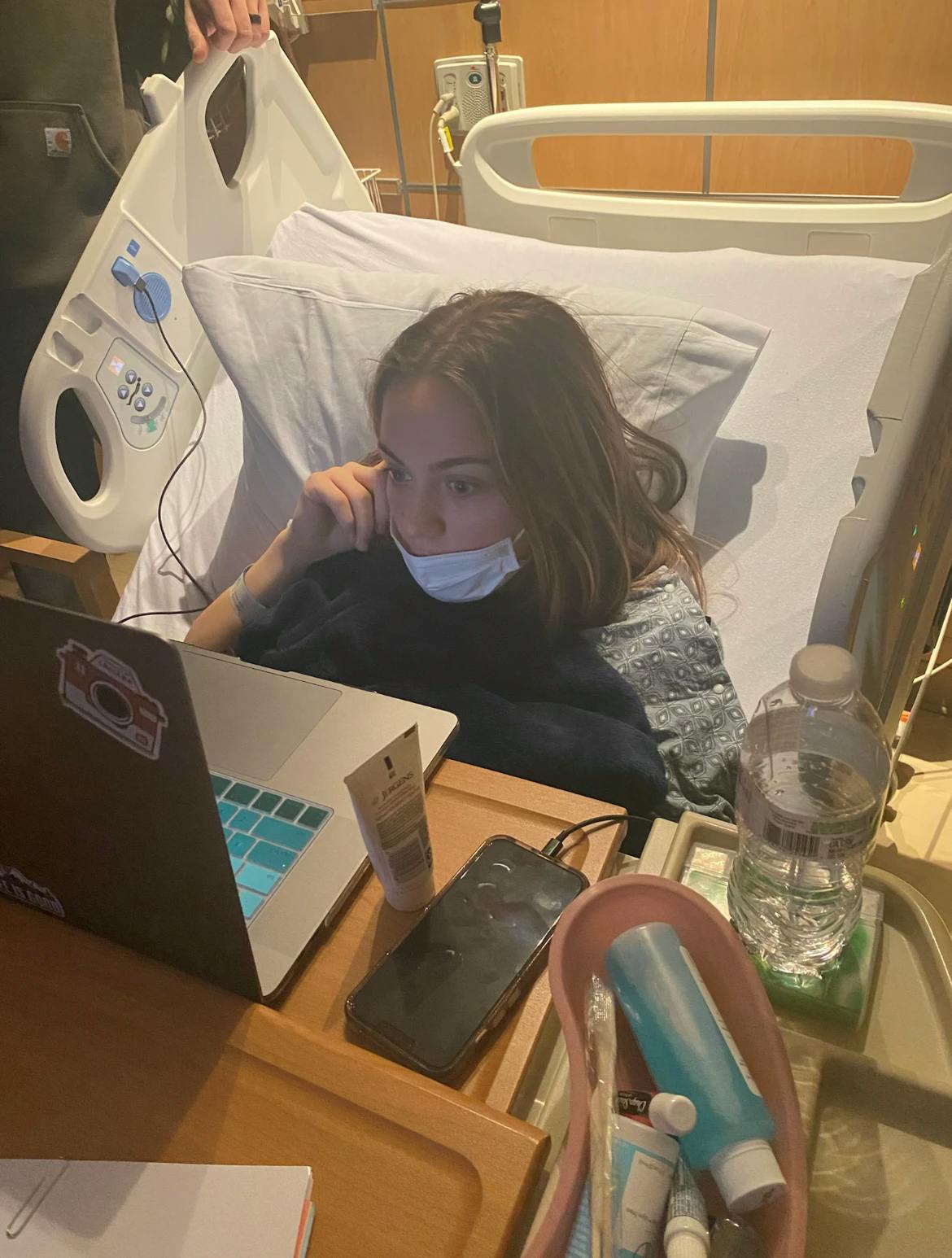
The Doctors Who Were Supposed To Help Her Tried To Gaslight Her
This was an unfair conclusion that offended Julianna, who was often happy, positive, and outgoing. The charismatic, sweet, blond-haired girl loved life. She had no reason to lie about any of her physical ailments. “That’s not who I am,” she explains to me. “I’m not making this up.” To this day, Julianna’s chart still has the diagnosis on it – and the neurologist won’t take it off. There was something else that was concerning to Julianna and her mother. After her discharge, she noticed that her brain scans showed white matter, which was never there before. The neurologist had failed to bring this up to her at the hospital.
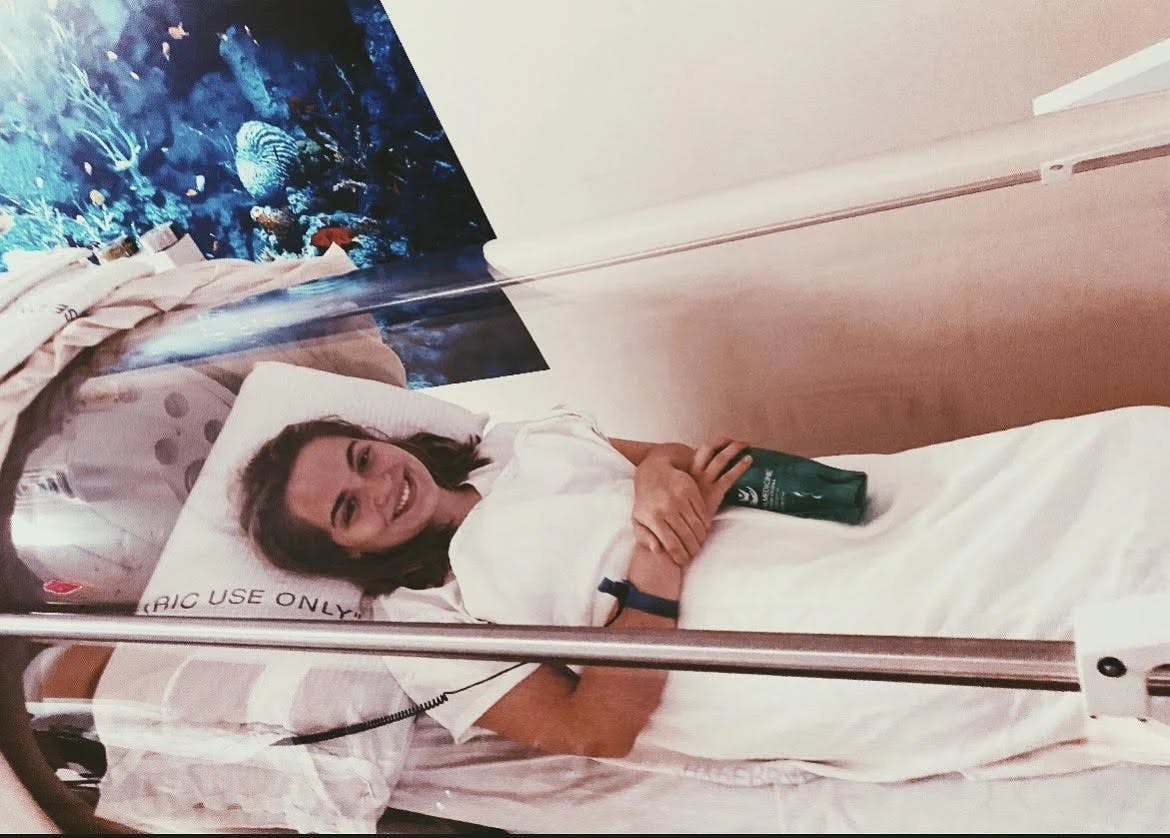
Not too long after this event, she had gotten an unexpected appointment update from an infectious disease doctor who wanted to see Julianna. She and her mother went into his office, and he surprised them with what he had to say. According to the doctor, there was a patient from a trial who was around the same age as Julianna and experienced similar symptoms after she received her vaccine. “This is 100% from the vaccine, but I don’t know how to help you. Hopefully, it just goes away within a few months,” he told her. Julianna and her mother were both desperate to know the cause of the reactions. They asked the doctor if they had done genetic testing on the individuals in these trials to figure out what was causing the reactions. Unsurprisingly, they had not. “He told us it would be too expensive. That it would be about $500 per participant, and they didn’t have enough money to afford that,” she explains. “I said, ‘Pfizer, Moderna, and J&J are making billions of dollars. How do you not have enough money to see what is actually causing these problems?’”
But Julianna’s horrifying experience with doctors, neurologists, and nurses isn’t a unique case. In fact, she’s met many people who have all gone through similar events, and it seems the doctors often gaslit patients who were purportedly hurt by the vaccine. “All of the kids I have met, they are saying this too. They put an 8-year-old in a psych ward because they thought she was making this up.” Julianna had met the other vaccine-injured children through React19, a science-based and non-profit organization dedicated to offering financial, emotional, and physical support for individuals who have been hurt by the Covid-19 vaccine.
They put an 8-year-old in a psych ward because they thought she was making this up.
“I've talked and been in so many groups of people whose kids are going through it, and whose kids have died from this, or the adults themselves who are going through this. Their horror stories are mostly about doctors and hospitals. It’s just so insane and heart-wrenching because these are the people who are supposed to be helping us, not making us feel crazy.” Julianna told me about Ryleigh, the 8-year-old girl who was sent to a psych ward after going to the hospital to be treated for the adverse effects she allegedly received from the vaccine. When the parents told the staff they were going to take her home and treat her with ivermectin instead for her injuries, they called Child Protective Services.
Julianna has since gone through extensive tests at several hospitals after the apparent misdiagnosis. A series of tests and evaluations later proved she had developed clonus (a neurological condition that creates involuntary contractions) and chronic inflammatory demyelinating polyradiculoneuropathy (CIDP), a rare autoimmune disorder that attacks the myelin that protects the body’s nerves. In short, her symptoms weren’t just “in her mind” like the neurologist had insinuated, and she needed medical treatment to help her with her condition.
Julianna's Journey to Recovery
For months, her family fought to get IVIG – intravenous immune globulin – a medication that gives the body antibodies to fight infections. It took a while, but she was finally able to get it with the help of her new osteopathic doctor (who is located four hours away from her home). When she first asked a neurologist for a prescription, he told her that she was “too far gone” to get better and to instead file for social security disability insurance and to live off the system for the rest of her life. “I’m 19, I don’t want to hear that from him, that’s not how I want to live the rest of my life,” she tells me. For 10 months, Julianna had to remain in a wheelchair. She went on to take different supplements, ivermectin, and IVIG, and was finally able to move again with a cane.
In addition, Julianna’s family has had to add extensions to their two-story home to make it more handicap accessible. The new additions to their home, medical treatments, and appointments have all totaled the Mastrantonio family about $100,000 – which they have to pay out of pocket. “It’s really hard for us right now, financially, because of all of the medical expenses and everything,” she says. Today, Julianna has set up a GiveSendGo page for her bills. "I have lost movement in my lower extremities, continuously suffer tremor episodes, debilitating headaches, transverse Myelitis, POTS, drop foot, neuropathy, Clonus, [and] white matter disease. Elongated cerebral tonsils, & a spinal stroke," her page writes.
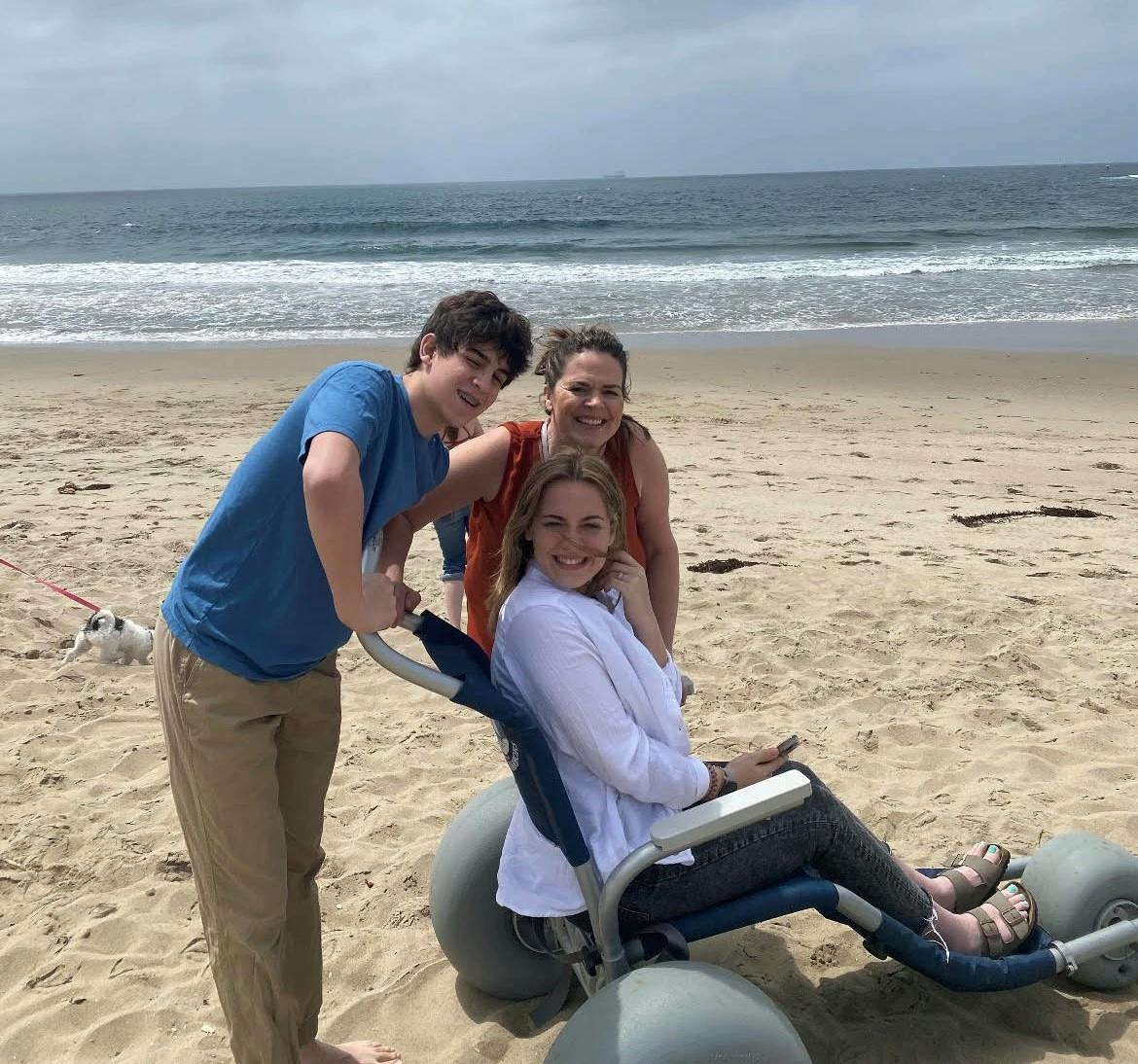
As for school, Julianna has gone back to taking classes, which has been an incredible challenge for her. “I am taking naps all day every day and can’t even stay awake to do my school work. So, I’m a little behind, and I’m only doing part-time, but I’m still doing it. And I’m still passing,” she adds. She’s also continuing with her pelvic and physical therapy to assist with her pelvic floor, where she feels pain and inflammation. And her new osteopathic doctor (who has experience in treating other vaccine-injured patients) has remained supportive of her health journey.
According to Julianna, he'd often coach resident doctors in training to not disregard patients' complaints about the vaccine. "Think of your patients as your kid. Think of them as your daughter or your son, know that what they're going through is real," he'd tell them. "They know their body and they know what's happening to them. You need to do what you can to help these people – that's your job – you took the oath to do the right thing." Still, Julianna believes that some doctors are too afraid to speak out about vaccine injuries for fear of tarnishing their reputation or having their licenses revoked.
You took the oath to do the right thing.
When I asked Julianna what advice she would give to people who are hesitant about the vaccine, she said: “Follow your gut. Never second guess yourself, because I do feel like your gut never lies to you. And I would say, question everything.” She also added that people should check out React19 to make a more informed decision. “If I would have known about all of the people it has affected, I wouldn’t have ever gotten it,” she adds.
Julianna Is Determined To Get Her Life Back
The whole time during our call, Julianna did not drop her smile or her enthusiasm. When I asked her how she was able to remain so positive, she gave credit to her fiancé, Austin, and the support of her family members. “My family has made it a little bit more easy on me, I feel like, in the long run. Because, I don’t think I could do it without them helping me,” she says. Julianna says she also journals, meditates, and works through her emotions to help her get through her struggles. Of course, her suffering isn’t just physical. She’s had to endure emotional and mental distress from dealing with the healthcare system, doctors, and nurses. “No one talks about the trauma that you have, not just physically but mentally. I don’t have trust in the medical system, and that’s so hard for me to say that because I was going to be a doctor. After this, I don’t ever want to set foot in the hospital ever again.”
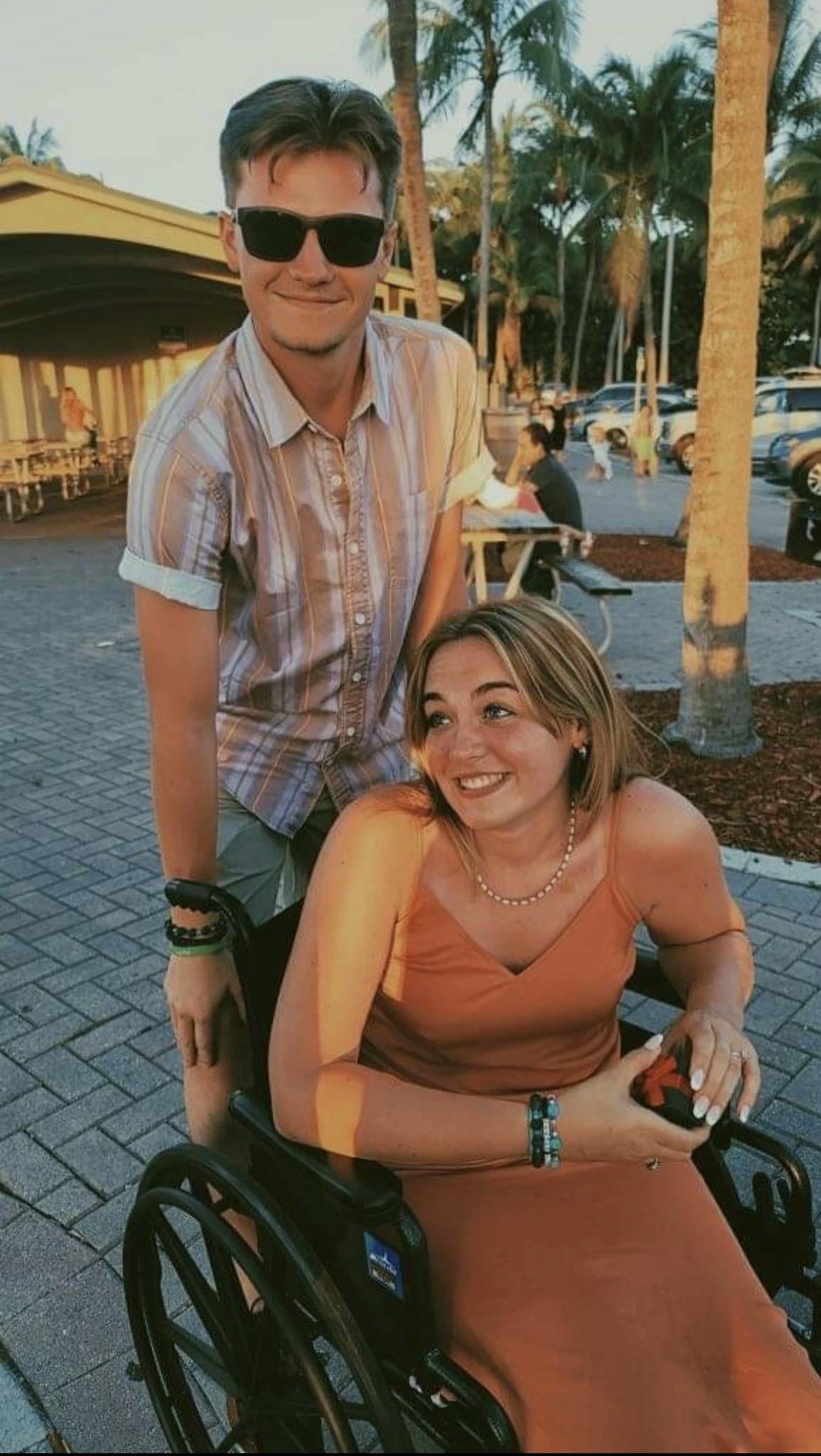
Julianna now focuses on what she's eating and what she's putting in her body. She's gone the more holistic route, even opting for natural shampoos and sticking to anti-inflammatory foods. And, she still continues to do what she’s always done. She attends family vacations and goes out in nature. Austin, her fiancé, lovingly carries her down to the beach and has taken care of her throughout her ordeal. She also talks about her niece, who has brought Julianna nothing but joy and inspiration. Her niece would always be present at her physical therapy and would always show hope in her eyes. “Can we have a dance party now?” she’d ask her aunt after her therapy sessions. "Seeing her face light up every time I get out of therapy always makes me feel like, 'Okay, I can do this, I'm gonna be back to normal eventually. My life will get back, it's just gonna take a lot of time.'"
Closing Thoughts
If you want to help Julianna with her medical expenses, please visit her GiveSendGo page here. Lastly, please visit React19's website to read more stories like Julianna's.
Don’t miss anything! Sign up for our weekly newsletter and get curated content weekly!